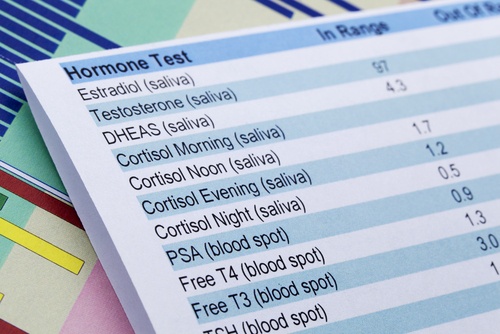Digestive enzymes are specific proteins that are vital in the process of breaking down food into absorbable components. Different organs in the digestive system such as the salivary glands, stomach, pancreas, and small intestine all produce the enzymes necessary. Each different enzyme has a specific type of nutrients they break down such as carbohydrates, proteins, and fats. These enzymes make your digestion flow!
The 8 Main Digestive Enzymes
Amylase: This enzyme is produced in the saliva and the pancreas, often referred to as salivary amylase and pancreatic amylase. Amylase focuses on the deconstruction of carbohydrates.
Deficiency Symptoms include: A lack of amylase can include a difficulty digesting carbohydrates resulting in gas, bloating, and diarrhea. This can happen during the digestion of food high in starch.
Protease: Proteas is released in the stomach and pancreas. This enzyme deconstructs proteins into amino acids.
Deficiency Symptoms include: Incomplete protein digestion leading to abdominal pain, bloating, and diarrhea can take place as a result of insufficiently produced protease.
Lipase: The pancreas and small intestine release lipase with the focus of breaking down lipids (fats) into fatty acids and glycerol. This allows for easier absorption once into smaller, absorbable components.
Deficiency Symptoms include: Nutritional deficiencies and weight loss can be a result of a shortage in producing lipase. This can result in oily or greasy stools, diarrhea, and can impair the digestive process of absorbing the nutrients needed.
Lactase: Produced in the small intestine, lactase is in charge of breaking down lactose which is a sugar found primarily in dairy products transforming the lactose into glucose and galactose.
Deficiency Symptoms include: Bloating, gas, diarrhea, and abdominal discomfort after the consumption of dairy products.
Sucrase, Maltase, and Isomaltase: Released in the small intestine, these enzymes break down various sugars such as sucrose, maltose, and isomaltose. The sucrose, maltose, and isomaltose are turned into much more simple sugars like glucose. The resulting sugars are absorbed by the bloodstream and used as energy for the body.
Deficiency Symptoms include: Deficiencies of Maltase and Isomaltase can have the same effect as a shortage of amylase: gas, bloating, and diarrhea.
Enzyme Supplements
With digestive enzyme deficiencies, there are supplements to combat the symptoms. Here are some recommended supplements to ease the digestive process.
AllerGzyme– For those lactase deficient, this supplement helps with soy, dairy, and egg sensitivities. This product also assists non-Celiac gluten sensitivity patients.
Betaine HCl– Betaine HCI is recommended for those who struggle with protein digestion and those who have hypochlorhydria (deficiency of stomach acid).
CarminaGest– CarminaGest is a herb and botanical blend for healthy digestion intended for those who cannot process Betaine HCI or other enzyme formulas. This helps to prevent indigestion, heartburn, diarrhea, and gastritis.
Digestzymes– The supplement protects against inflammatory symptoms and produces pancreatic enzymes. This supports enzymes that break down protein, fat, and carbohydrates.
Hydrolyzyme– It is often hard on the body to break down protein supplements such as protein powders and liquid meals. Because they pass through the stomach at a faster rate, this supports the supplemental protein digest through the stomach.
PaleoZyme– PaleoZyme supports the digestion of fats, proteins, and carbohydrates. This works to help the pancreatic enzyme deficiency.
Plant Enzyme Digestive Formula- For those consuming high amounts of ingredients from a vegetarian diet such as high fiber, this supplement will work to combat gas, bloating, abdominal pain, and irregular bowel movements.
ProtectZyme– This works to help the digestion of proteins and aids in the consumption of high in starch foods.
You can find all of these supplements in our Fullscript store.






